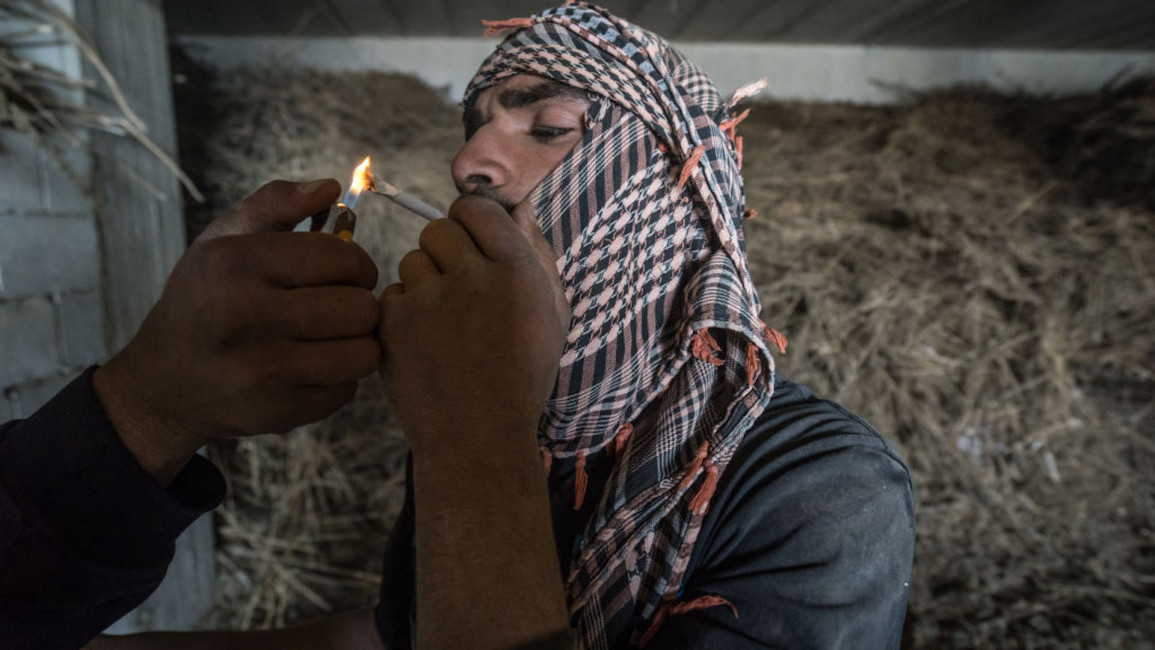Lebanon told to legalise hashish to solve economic crisis
Lebanon told to legalise hashish to solve economic crisis
Hashish has long been cultivated illegally in Lebanon, particularly in the Bekaa Valley, historically a stronghold for Hizballah and outlaw groups.
2 min read
"The quality [of Hashish] we have is one of the best in the world" [Getty]
An international consulting company has advised Lebanon to legalise cannabis, locally known as hashish, and export it for "medicinal use" as one of many ways it can overhaul its troubled economy.
Beirut hired consulting firm McKinsey & Co earlier this year to help formulate a plan to reform various sectors, including agriculture to increase the added value of its exports and services.
Considered the third most indebted country in the world based on debt-to-GDP ratio, Lebanon has been seeking to reduce its reliance on revenues from remittances and tourism, both of which have come under stress due to geopolitical uncertainties in the tumultous region.
Lebanon's minister for the economy Raed Khoury presented the McKinsey plan to President Michel Aoun this week, with some details of the report published by Bloomberg over the weekend.
Among the recommendations made in the 1,000-page report - which will not be published until a Lebanese government is formed following the general election that took place May - is for Lebanon to legalise cannibas production for exporting globally, "for medicinal purposes".
Beirut hired consulting firm McKinsey & Co earlier this year to help formulate a plan to reform various sectors, including agriculture to increase the added value of its exports and services.
Considered the third most indebted country in the world based on debt-to-GDP ratio, Lebanon has been seeking to reduce its reliance on revenues from remittances and tourism, both of which have come under stress due to geopolitical uncertainties in the tumultous region.
Lebanon's minister for the economy Raed Khoury presented the McKinsey plan to President Michel Aoun this week, with some details of the report published by Bloomberg over the weekend.
Among the recommendations made in the 1,000-page report - which will not be published until a Lebanese government is formed following the general election that took place May - is for Lebanon to legalise cannibas production for exporting globally, "for medicinal purposes".
"The quality we have is one of the best in the world," Khoury said in an interview on Friday, in reference to Lebanese hashish.
Khoury claimed that cannabis could become a one-billion-dollar industry in the country.
Read more:
Lebanon's 'fearful' weed farmers turn to lucrative wine business
Hashish has long been cultivated illegally in Lebanon, particularly in the Bekaa Valley, historically a stronghold for Hizballah and other outlaw groups.
The quasi-lawless area - one of the poorest in Lebanon - is notorious for its production of narcotics, which expanded massively over recent decades, turning into a multi-million-dollar industry.
Lebanon is the world's fourth largest producer of cannabis, according to a 2017 report by the United Nations Office on Drugs and Crime (UNODC), after Morocco, Mexico, and Paraguay.
But experts say the politically sensitive step of legalising cannabis - even for bespoke exports - is easier said than done.



